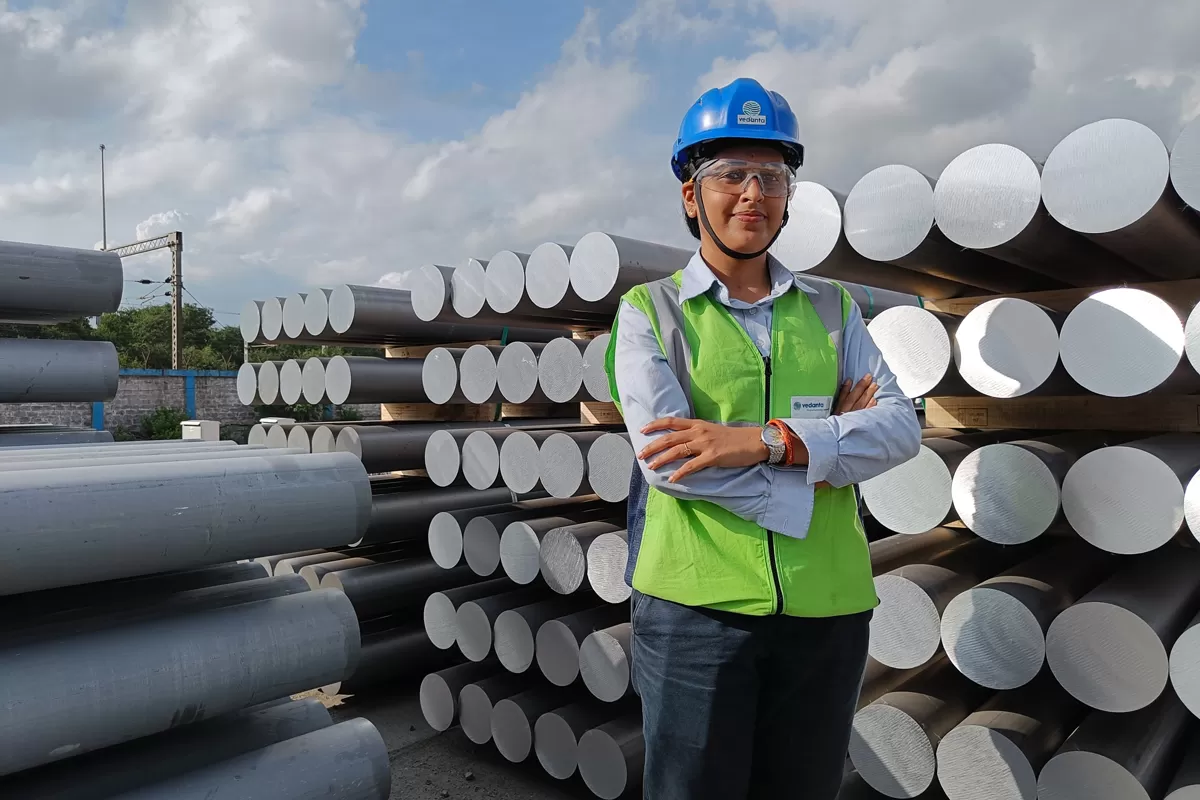On National Technology Day, Vedanta, India’s leading producer of energy transition metals commits to powering India’s technology and engineering sector through its thrust on value-added and sophisticated range of metals. Vedanta is expanding its value-added products for its zinc and aluminium products. The company has forayed into zinc alloys with a 30 KTPA plant while the aluminium business plans to significantly boost the share of value-added products in its portfolio to over 90 per cent in the near-term. For its aluminium capacity expansion, Vedanta's board has approved about $1.5 billion, including a smelter expansion (for additional aluminium production) and increased value-added product (VAP) capacity at its flagship aluminium plants.
Vedanta produces the four most widely used metals in the world – iron (for steel production), aluminium, copper and zinc. These are the four most important metals that make modern life possible. From primary applications such as building & construction, defence, aerospace, power generation, automotive etc, these metals are now powering tomorrow’s new-age tech such as renewable energy, energy storage, biotechnology, nanotechnology, space exploration, and hi-tech manufacturing.
Simultaneously, the company is building its critical minerals footprint, exploring copper, nickel, cobalt, chromium, vanadium, tungsten and Platinum Grade Elements (PGEs) across states like Maharashtra, Rajasthan, Bihar, Arunachal Pradesh, Karnataka, and Chhattisgarh, supported by India’s policy push for mineral security.
Globally, there are about 3,000 technological applications of aluminium across various industries, whereas India has explored only about 300 so far. Vedanta alone produces nearly 60 per cent of India’s aluminium and finds its usage in developing advanced technologies owing to its exceptional properties of lightweight, high strength-to-weight ratio and infinite recyclability. The company is expanding its value-added aluminium products capacity in billets and rolled products. Aluminium billets are used in aerospace, defence and solar power sectors while aluminium rolled products are used in modern high-speed railways, electric vehicles, pharmaceuticals and new-age battery enclosures.
As the world’s largest integrated zinc producer, Vedanta’s Hindustan Zinc is exploring uses beyond zinc galvanization of steel to protect it from rust, which currently accounts for over 60 per cent of global zinc demand. Its latest range of value-added alloys, HZDA-3 and HZDA-5 (Hindustan Zinc Die-Casting Alloys), have a wide range of uses across automobiles, defence, household appliances, sanitary-ware etc.
Emerging research identifies zinc-based batteries as safe, cost-effective, and recyclable alternatives to lithium-ion batteries. Zinc batteries offer high thermal stability, non-flammability, and high performance across extreme temperatures. This makes zinc a geopolitically secure and sustainable solution for India’s energy storage systems to store solar power. Advanced applications of zinc, such as in 3D printing, semiconductors, and solid-state energy systems are also rapidly increasing.
Globally, industrial demand for silver reached a record 680.5 million ounces in 2024 (as per The Silver Institute), driven by its indispensable role in renewable energy (photovoltaics), AI-
powered consumer electronics, wearables and nanotechnology. Hindustan Zinc is India’s only primary silver producer, and the market presents a massive opportunity to align domestic consumption with global tech trends.
Silver’s conductivity and antimicrobial properties also make it critical in healthcare, biotechnology, and data transmission. While silver has a wide array of technological applications globally, India's utilisation of silver in industrial and technological sectors remains limited. As India’s only primary silver producer,
Copper, a classified critical metal is integral to various sectors, including electrical wiring, renewable energy, transportation, healthcare, and electronics. In India, the utilization of copper is expanding, especially in infrastructure development, renewable energy projects, and the fast-growing electric vehicle market. Vedanta’s position as a leading copper producer presents a strategic advantage to expand and innovate in the applications of copper.
Similarly, steel, iron ore, and ferroalloys continue to be vital for India's infrastructure, mobility, construction, and shipbuilding sectors. While India is the second-largest producer of crude steel and fourth largest in iron ore, the integration of steel into new-age technologies such as offshore wind structures, EV frames, and hydrogen pipelines is an emerging area still being explored.
Vedanta has long established itself as a leader in energy transition metals and has pioneered the production of low carbon ‘green’ metals. This includes Asia’s first low carbon ‘green’ zinc brand EcoZen and low carbon footprint, ‘green’ aluminium range, branded Restora and Restora Ultra, for customers seeking to decarbonise their operations and reduce the carbon-footprint of their end-products.




















